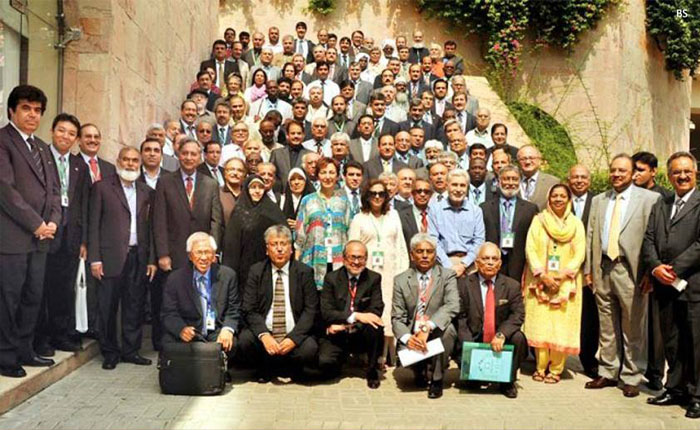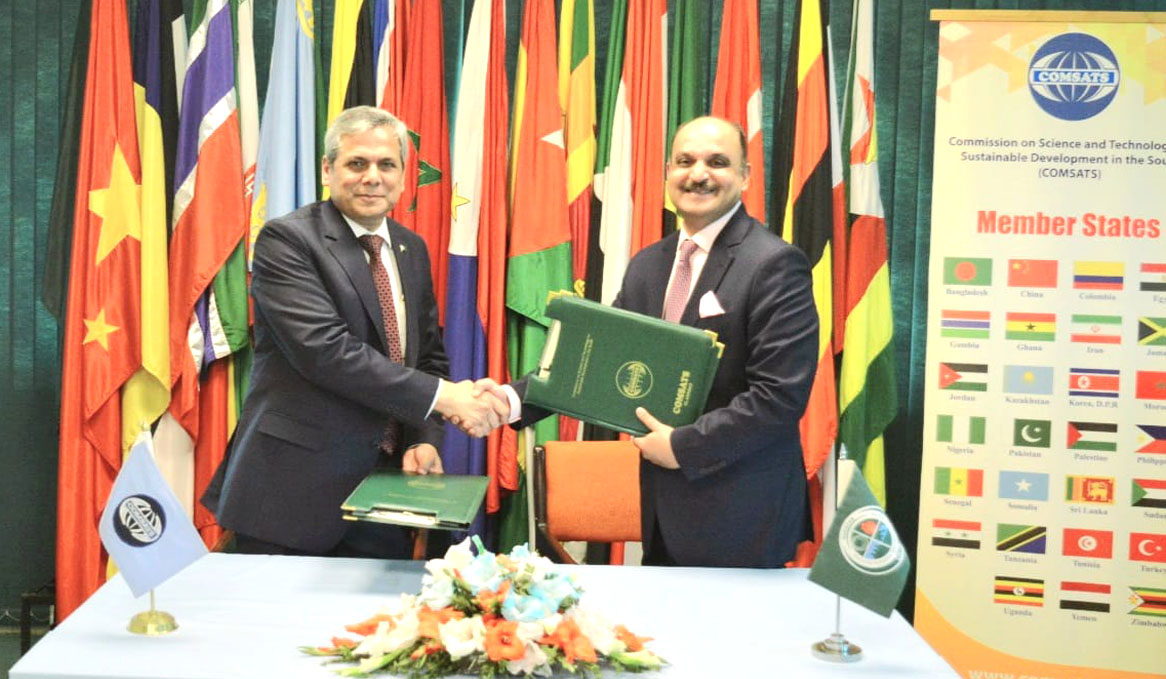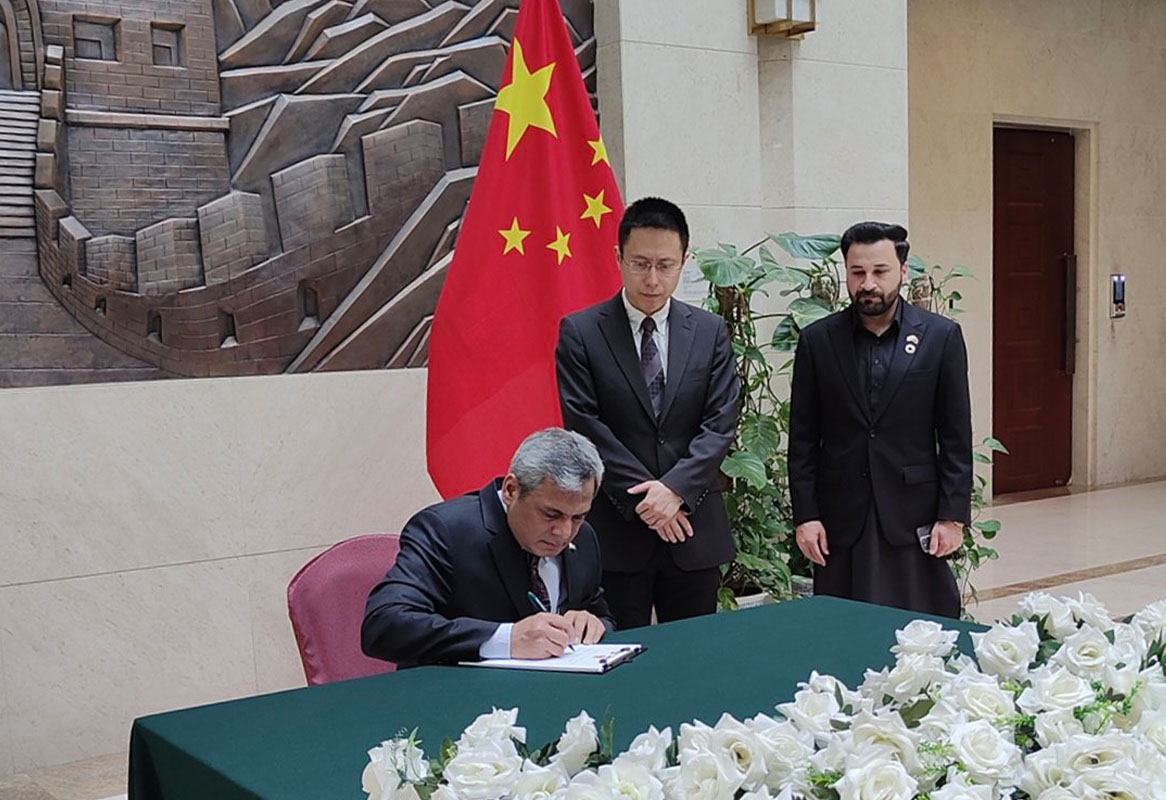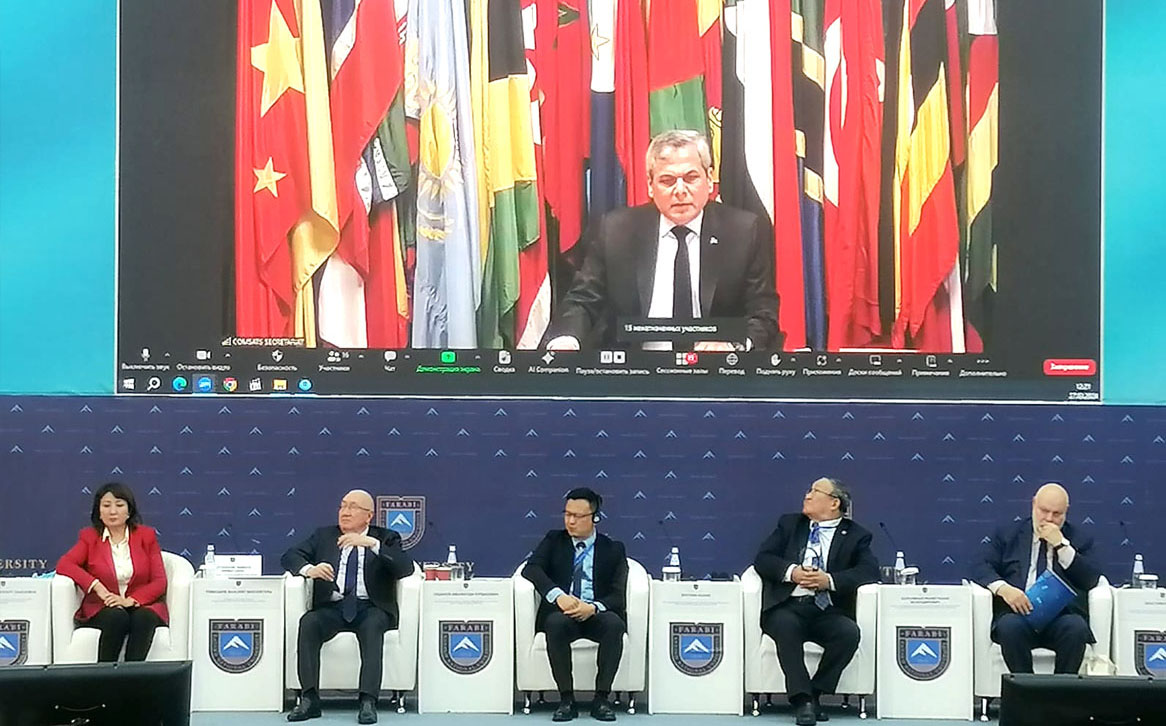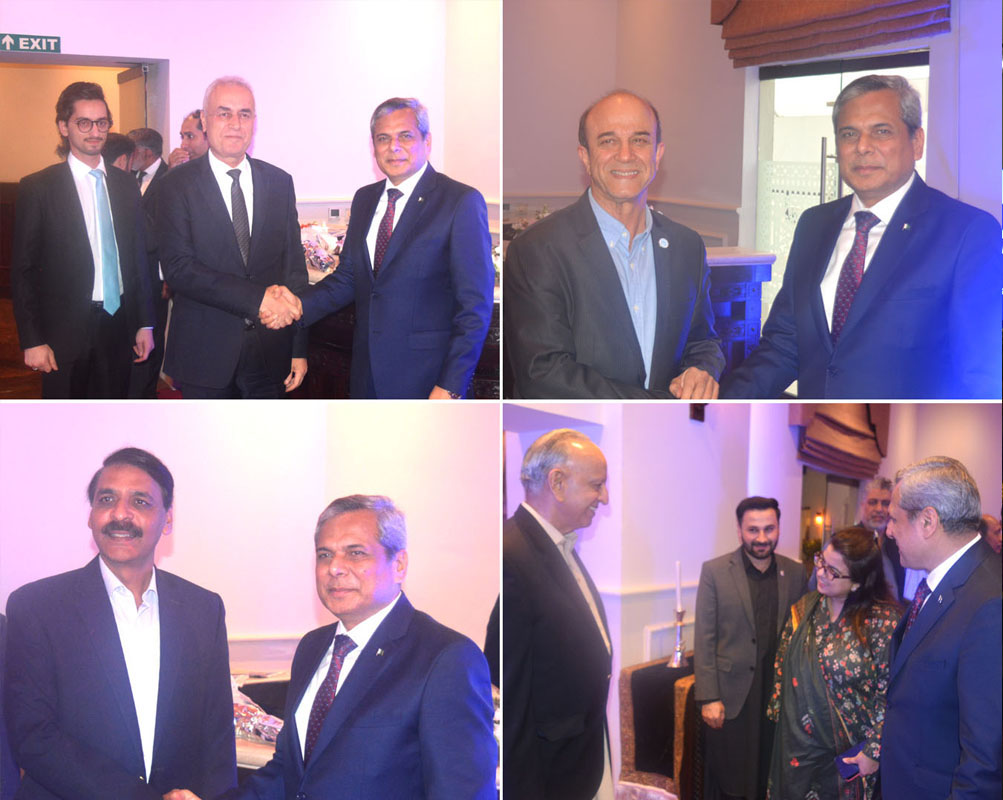COMSATS Institute of Information Technology (CIIT), Pakistan, hosted the Vice Chancellors’ Forum 2013, in Islamabad, from 23 to 24 September 2013. The event, second of the series, was held in collaboration with the Islamic Educational, Scientific and Cultural Organization (ISESCO); Higher Education Commission (HEC) of Pakistan; Ministry of Science and Technology (MoST), Government of Pakistan; and the Federation of the Universities of the Islamic World (FUIW). The theme of this year’s Forum was ‘Universities in the Islamic World: Challenges of Internationalization’.
More than 130 Vice Chancellors/Rectors/Presidents of universities and higher educa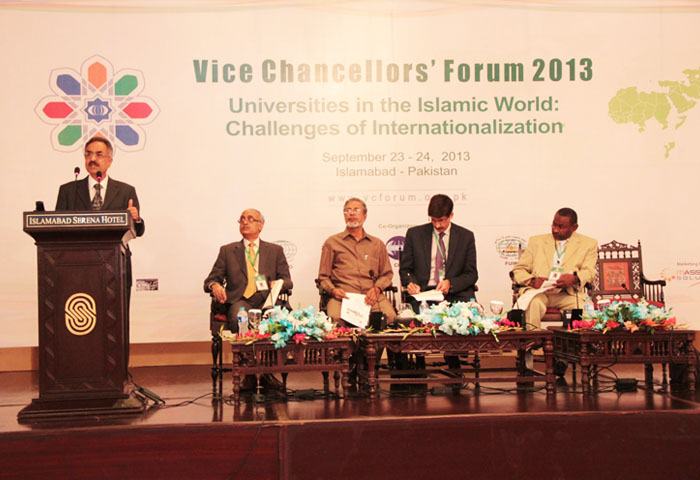 tion institutions from the Islamic World participated in the Forum, which provided a platform to the academic and administrative heads of these institutions to build linkages for initiating joint academic programmes; endorsing one another’s research activities; pooling resources for, inter alia, offering scholarships; promoting student & faculty exchange programmes, as well as establishing virtual centers of excellence. The academic institutions from Afghanistan, Bangladesh, Brunei Darussalam, Cameroon, Comoros, Egypt, Guinea, Indonesia, Iran, Jordon, Kyrgyzstan, Libya, Lebanon, Malaysia, Morocco, Nigeria, Pakistan, Palestine, Sudan, Syria, Tajikistan, Tunisia, Turkey, Uganda, UK and Yemen, were represented at the Forum. Government officials from Oman and Saudi Arabia also attended the meeting.
tion institutions from the Islamic World participated in the Forum, which provided a platform to the academic and administrative heads of these institutions to build linkages for initiating joint academic programmes; endorsing one another’s research activities; pooling resources for, inter alia, offering scholarships; promoting student & faculty exchange programmes, as well as establishing virtual centers of excellence. The academic institutions from Afghanistan, Bangladesh, Brunei Darussalam, Cameroon, Comoros, Egypt, Guinea, Indonesia, Iran, Jordon, Kyrgyzstan, Libya, Lebanon, Malaysia, Morocco, Nigeria, Pakistan, Palestine, Sudan, Syria, Tajikistan, Tunisia, Turkey, Uganda, UK and Yemen, were represented at the Forum. Government officials from Oman and Saudi Arabia also attended the meeting.
This international event was spread over two days, with 12 invited talks and 10 panel discussions constituting the technical proceedings of the event. Other highlights of the event included a Networking and a General Assembly session, an opening and closing ceremonies, and an exhibition.
Inaugural session of this year’s Forum was held on September 23, 2013, which was graced by Mr. Zahid Hamid, the Federal Minister for Science & Technology, Government of Pakistan, as the chief guest. The Federal Minister, in his capacity as the Chancellor CIIT, welcomed the distinguished guests and participants of the Forum in an address that focused on socio-economic development through knowledge-based economy. He congratulated the organizers for arranging an important international forum of heads of academic institutions on a theme of vital importance and hoped that the Forum will help in establishing linkages among the institutions of Islamic World. He further noted that the present Government of Pakistan is particularly focusing on promoting higher education and knowledge-based economy in the country.
In his introductory remarks, the Chairman HEC, Dr. Mukhtar Ahmed, informed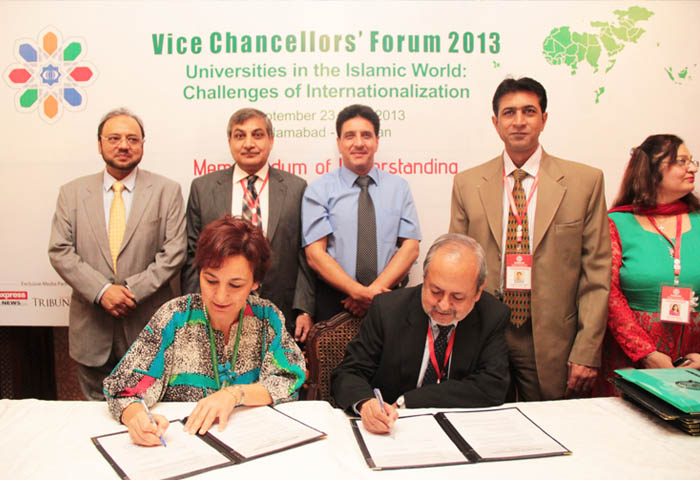 that the focus of the Forum was on the governance of universities, in particular, and academia research and future plans, in general. With the participation of the administrative and academic heads attending the forum, he hoped for sharing and exchange of experiences. Speaking on the occasion, the Director General ISESCO and Secretary General Federation of Ministers of Islamic World, Dr. Abdul Aziz Othman Altwaijri, shared his vast experience in the field of higher education and highlighted problems and issues pertaining to this sector in the Islamic World. Mr. Muhammad Baligh-ur-Rehman, Minister of State for Education, Government of Pakistan, considered it imperative to invest in education and S&T for development. He pledged the Forum to deliberate with an aim to develop well-defined and monitorable innovative ways for excelling in these fields. Also, addressing the gathering, Rector CIIT, Dr. S. M. Junaid Zaidi, stressed on the provision of quality higher education among the Islamic World.
that the focus of the Forum was on the governance of universities, in particular, and academia research and future plans, in general. With the participation of the administrative and academic heads attending the forum, he hoped for sharing and exchange of experiences. Speaking on the occasion, the Director General ISESCO and Secretary General Federation of Ministers of Islamic World, Dr. Abdul Aziz Othman Altwaijri, shared his vast experience in the field of higher education and highlighted problems and issues pertaining to this sector in the Islamic World. Mr. Muhammad Baligh-ur-Rehman, Minister of State for Education, Government of Pakistan, considered it imperative to invest in education and S&T for development. He pledged the Forum to deliberate with an aim to develop well-defined and monitorable innovative ways for excelling in these fields. Also, addressing the gathering, Rector CIIT, Dr. S. M. Junaid Zaidi, stressed on the provision of quality higher education among the Islamic World.
The Inaugural Session was followed by a Plenary Talk by Prof. Atta-ur-Rahman, President of Pakistan Academy of Sciences (PAS), who is also the former Coordinator General COMSTECH. The Networking and General Assembly sessions of the Forum were followed by the three parallel working sessions chaired by: Prof. Ahmed Yousif A. Al Darweesh; President International Islamic University Islamabad, Pakistan; Prof. Ali Abdelaziz Ali Mohamed Eissa, Ain Shams University, Egypt; and Dr. Abdul Rahman Ahmad Arkadan, President Rafik Hariri University, Lebanon; co-chaired by Dr. Hasan Sohaib Murad, Rector of University of Management, Pakistan; Prof. Mohd. Hamdi Bin Abd Shukor, Deputy Vice Chancellor, University of Malaya, Malaysia; and Dr. Ramin Rahmani, President Gorgan University of Agricultural Science and Natural Resources, Iran, respectively. These sessions covered 12 invited talks by the participants from Bangladesh, Egypt, Iran, Malaysia, Pakistan, Sudan, and Turkey. In perspective of the issues related to internationalization of Islamic World universities, the talks covered various aspects including: human capital, case study, university rankings, quality assurance, S&T parks, higher education, faculty and student exchange, quality standards system, as well as research and innovation. The Rector of University of Management, Pakistan, also announced 50 fully funded scholarships for the students from the Islamic countries.
The 10 panel discussions that constituted the second day of the Forum covered th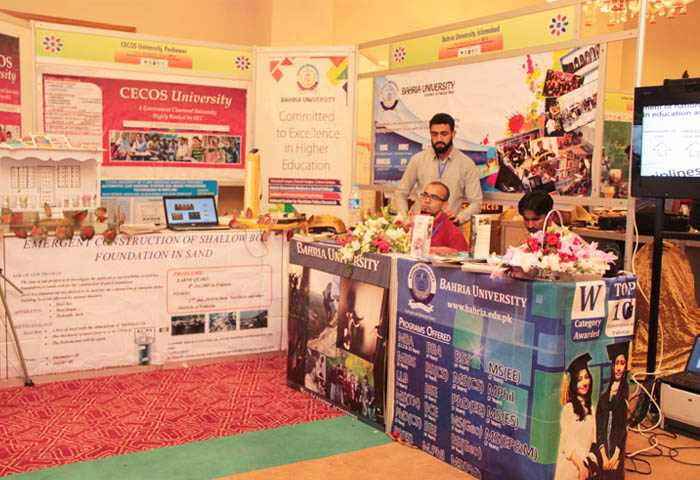 e following topics: ‘The Millennium Year Sleep in Research & Enquiry in the Islamic World’; ‘Building World Class Universities in Islamic World’; ‘Future of the University & University of the Future’; Internationalization Models’; ‘Policy Reforms in Internationalization: Experience of Islamic World’; ‘Is Internationalization a Western Construct?: What is the Islamic World View’; ‘Pooling Resources: Encouraging Mobility’; ‘Research and Innovation: the Role of International Collaboration’; ‘Islamic Educational Networking Opportunities for Scholars, Experts and Researchers’; and ‘Role Model University from Islamic Perspective’. The panels of these discussions comprised assortments of participants from Bangladesh, Brunei Darussalam, Cameroon, Comoros, Guinea, Indonesia, Iran, Jordan, Kyrgyzstan, Libya, Morocco, Nigeria, Pakistan, Palestine, Syria, Turkey and Yemen.
e following topics: ‘The Millennium Year Sleep in Research & Enquiry in the Islamic World’; ‘Building World Class Universities in Islamic World’; ‘Future of the University & University of the Future’; Internationalization Models’; ‘Policy Reforms in Internationalization: Experience of Islamic World’; ‘Is Internationalization a Western Construct?: What is the Islamic World View’; ‘Pooling Resources: Encouraging Mobility’; ‘Research and Innovation: the Role of International Collaboration’; ‘Islamic Educational Networking Opportunities for Scholars, Experts and Researchers’; and ‘Role Model University from Islamic Perspective’. The panels of these discussions comprised assortments of participants from Bangladesh, Brunei Darussalam, Cameroon, Comoros, Guinea, Indonesia, Iran, Jordan, Kyrgyzstan, Libya, Morocco, Nigeria, Pakistan, Palestine, Syria, Turkey and Yemen.
Later, the Conference Report was presented followed by discussion on and adoption of the ‘Forum Resolution’. Some salient points of the Resolution pertained to:
- Constitution of a committee (based in Islamabad) of 10 selected Vice Chancellors to monitor the academic developments with a view to promoting cooperation for scholarship offers and research among the Islamic Universities;
- Publication of a quarterly research and innovation journal for scientists and scholars of the Islamic countries;
- Undertake the publication of ‘Directory of Islamic Universities’;
- Opening of institutions, departments, and research in the universities for capacity building;
- Offering scholarships to students and encouraging exchange of academic personnel, as well as cooperation in research areas of common interest.
The Closing ceremony of the event was held on September 24, 2013, which comprised presentation of a ‘Forum Resolution’, address by the Chairman HEC, DG ISESCO, Federal Minister MoST, and closing remarks by the Rector CIIT. The ceremony also featured a special presentation by an e-health expert, Dr. Shariq Khoja, introducing an indigenously developed ‘Maternal Wrist Band and Vital Sign Monitor’.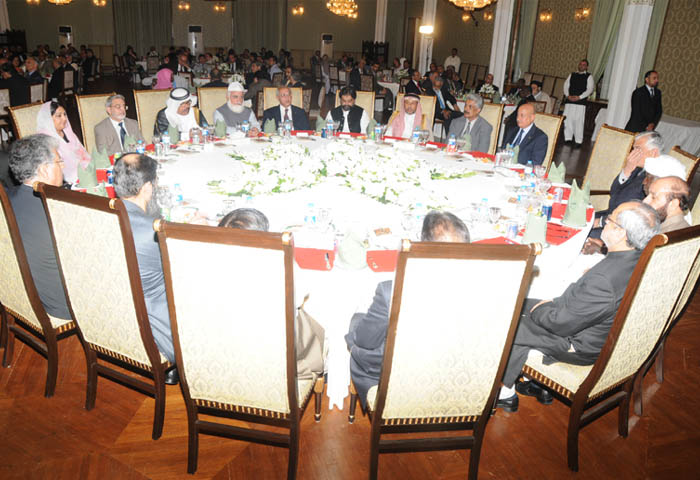
In a dinner hosted in honour of the participants of the Forum, the President of Islamic Republic of Pakistan, Mr. Mamnoon Hussain, stressed the OIC countries to make greater efforts to improve their performances, reinforce the values of understanding, coexistence, and peace among the people of the Islamic Ummah and the world as a whole. He further stated, “In today’s world, universities, whether they are in developed countries or the developing countries, are judged, recognized and accepted in terms of their international perspective.”
The exhibition was held on the sidelines of the Forum to showcase the academic and research programmes being offered by different universities of Pakistan. There were more than 50 stalls representing different institutions at the venue of the meeting.


